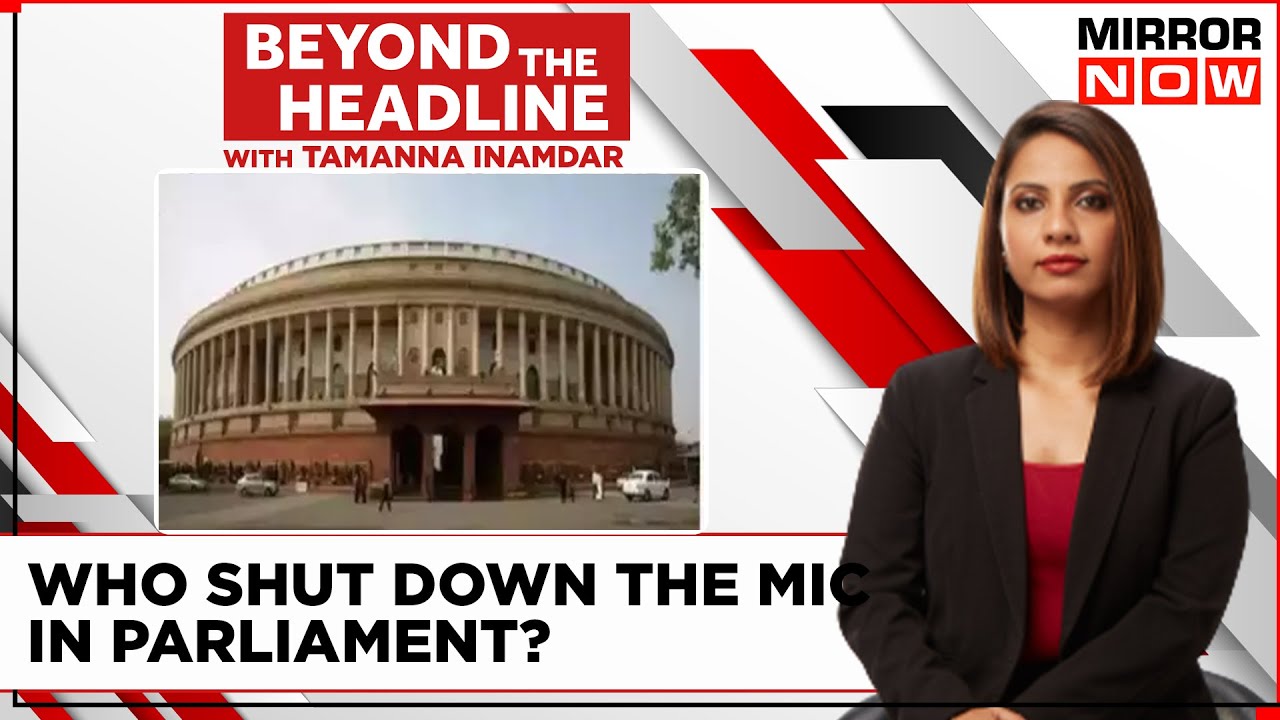No Sound , Only Fury In Parliament | Who Shuts Down The Mic ? | Beyond The Headline
Unleash Your Creative Genius with MuseMind: Your AI-Powered Content Creation Copilot. Try now! 🚀
Ladies and gentlemen, imagine a bustling parliament filled with passionate debates and powerful speeches. It's a cacophony of voices, each vying for their chance to be heard. In the midst of this symphony of democracy, one peculiar incident arose – the mysterious muting of a microphone. Today, we delve into the intriguing world of parliamentary debates, where facts and fiction collide, and silence reigns for 20 enigmatic minutes.
Dr. Rajdeep Roy's Parliament Odyssey
Dr. Rajdeep Roy, a dedicated Member of Parliament, has embarked on a journey where he's been present for over 90% of parliamentary sessions in the last four years. It's no small feat, and his unique perspective on the matter at hand is invaluable. Dr. Roy's claim is as bold as it is insightful - in all his time spent in the hallowed halls of Parliament, he has never, not once, witnessed a microphone being intentionally muted.
This revelation prompts us to ponder the legitimacy of the Congress party's assertions that their microphone fell prey to a 20-minute silence, a veritable eternity in the world of parliamentary debates. Dr. Roy, being a man of facts, firmly asserts that this claim is perched on a rickety branch of falsehood.
A Question of Consistency
In the grand theatre of politics, consistency is often elusive. Dr. Roy's testimony raises an important point – if there were indeed efforts to mute opposition voices, wouldn't it be consistent? Yet, he recounts a session where Rahul Gandhi, a prominent opposition leader, was allowed a staggering 52 minutes to articulate his thoughts. This invites us to question whether there's a systematic agenda to silence the opposition, or if the variances in speaking times are a result of the intricate dance of parliamentary proceedings.
The Technical Glitch Enigma
The infamous 20-minute silence has left many baffled, prompting them to seek answers, a clarion call for transparency. When asked about this enigmatic episode, Dr. Roy points to a rather prosaic explanation – a technical glitch. But he does so with a caveat, emphasizing that such technical gremlins are rare in the parliamentary machinery. His tenure has not seen a parallel situation.
Intriguingly, the conversation concludes with a sense of mystery still shrouding the incident. The "why" of the 20-minute mute remains elusive, akin to a riddle awaiting its solver. However, the official response, a matter of public record, attributes this hush to the world of wires and circuits – a technical glitch.
The Need for Transparency
As we navigate the labyrinthine corridors of parliamentary proceedings, one thing becomes clear – transparency is the bedrock of a healthy democracy. The allegations of mics being muted during crucial speeches cannot be brushed aside as mere coincidence. In a world where every word spoken in Parliament can shape the destiny of a nation, such incidents deserve to be scrutinized with unwavering focus.
What we need now is a Joint Parliamentary Committee (JPC) investigation, a collective effort to uncover the truth. Such inquiries are not the enemies of democracy; they are its defenders, its champions. They uphold the values of accountability and openness.
In conclusion, our journey through this parliamentary puzzler has left us with more questions than answers. Dr. Rajdeep Roy's insights shed light on the uncharted territories of parliamentary debates, where voices rise, and sometimes, as it seems, fall silent. The mystery of the 20-minute mute remains, and the call for a JPC investigation grows louder. In the end, it's not just about the mute button; it's about safeguarding the vibrant tapestry of democracy itself.
